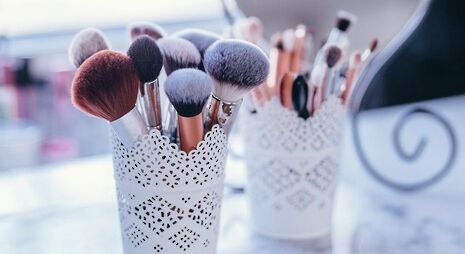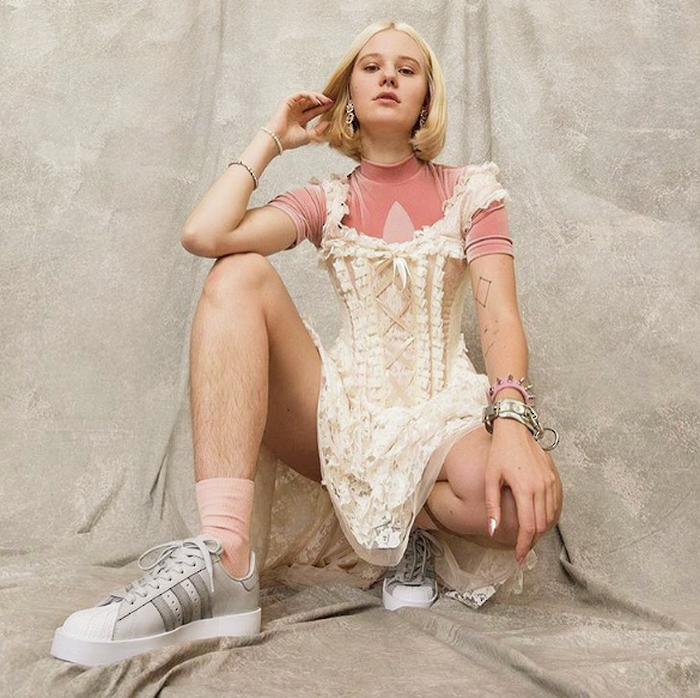Looking beyond looks
We need to challenge the pressure created by society to look beautiful

When you meet me, or anyone else, what do you notice first? Inevitably, physical appearance plays a part: our three-dimensional characteristics are our primary interface with the outside world. Yet if we try to speak objectively of what exactly we see when we first face another individual, it is worth posing the question: is it the measure of their thighs, or the wrinkles around their eyes that we notice? Is it, perhaps, that their stomach is distended after eating, or that their hair is just not quite silky enough?
When written here it almost seems ridiculous that these would be the defining features to emerge from the richness of a person, but these are—as far as my own experiences, and those of others, have informed me—what we, as creatures of the 21st century, worry about. Somehow, we’ve been flogged the idea that to be beautiful we have to look a certain way.
These perceptions of what bodies should look and feel like are not only erroneous, but psychologically damaging
As a woman, I must be free of stretch marks or cellulite, lithe and lean, but still, of course, with a peachy bum and breasts; weight-lifting is good for definition, but not too often, lest I become greater than a size six. Also, while we’re here, I must never have hair anywhere below the eyebrows, yet luscious locks must always decorate my scalp.
Fundamentally, these perceptions of what bodies should look and feel like are not only erroneous, but psychologically damaging. I’ve spent nearly half of my 21 years on this earth restricting my diet, over-exercising and putting myself—on more than one occasion—in hospital, in my quest to achieve the thinness I have felt would make me beautiful, and hence, as society has taught me, happy. It’s taken me actual years to realise that neither emotional serenity nor true beauty will be found in a meal vomited into a toilet bowl, or from a dwindling number on a scale. These are inside jobs—no matter what society’s images tell us.
In The Beauty Myth, Naomi Wolf argues that beauty is “the last, best belief system that keeps male dominance intact.” She writes persuasively that post-demise of the domestic sphere, the patriarchal society that we inhabit needs to find a new way of keeping women in their place. After all, even if we now believe that a vagina does not correlate with an innate ability to cook, what could be more frightening than a woman with power? As a female, and one who has often felt beauty to be the strongest currency on the market, yet has rarely ‘felt pretty’, I am compelled by Wolf’s arguments.
Lasting self-esteem is to be found in qualities that cannot be seen with the naked eye
There is an imbalance, currently, in the degrees of pressure and obsession regarding looks that affect women versus men. Look at any emaciated runway model, or Barbie-esque toys that young girls are still sold, and it is glaringly obvious; for women, the “Beauty Myth” is ubiquitous. Nonetheless, one of my most profound concerns is that as this warped phenomenon ramifies, unyielding, through our kind, it is swallowing every gender with it. For, increasingly, there are men, too, who become obsessed with muscle mass and definition, hypnotised under the spell of needing to be bigger if they are to be seen; one could be forgiven for believing that muscle mass is more important than cerebral or emotional development, because that’s the message our sons are receiving.
So here is a false ideal of beauty, increasingly for all genders, treated as the axis around which our lives must spin. And if we fail to fit the mould? Well, dare we not, for a flaw in appearance is decreed as one of character; an aesthetic failing that doubles as a moral one. The criteria that we are required to fit are restrictive and inflexible at best, perfidious to health at worst. So, how do we go about challenging what can only be described as a cultural conspiracy?
I worry about using commercialised feminism to do so; the new axiom of ‘loving ourselves, despite the flaws,’ is, to my mind, somewhat defeatist. It does not question society’s superficial notions of beauty, it merely seeks to bypass them. As such, whilst we might feel better in exempting ourselves from The Beauty Myth personally, we are still avowing its wider validity.
I feel we need to rebel in a different way. The trick is perhaps this: to love ourselves, wholly and utterly, for the person that we are, rather than the sum of more or less flawed parts. It is to accept that our physicality is only one aspect of our being, and that lasting self-esteem is to be found in qualities that cannot be seen with the naked eye. Such self-acceptance is a lofty goal; I won’t pretend otherwise. But if we encourage ourselves to aim for it, we might debunk some of the most pernicious lies we’ve been sold along the way. And then, with the mirrors put down, we might actually live.
 News / Clare Hall spent over £500k opposing busway 24 December 2025
News / Clare Hall spent over £500k opposing busway 24 December 2025 News / Caius mourns its tree-mendous loss23 December 2025
News / Caius mourns its tree-mendous loss23 December 2025 Comment / The ‘class’ of Cambridge24 December 2025
Comment / The ‘class’ of Cambridge24 December 2025 Comment / Yes, I’m brown – but I have more important things to say22 December 2025
Comment / Yes, I’m brown – but I have more important things to say22 December 2025 Interviews / Politics, your own way: Tilly Middlehurst on speaking out21 December 2025
Interviews / Politics, your own way: Tilly Middlehurst on speaking out21 December 2025










